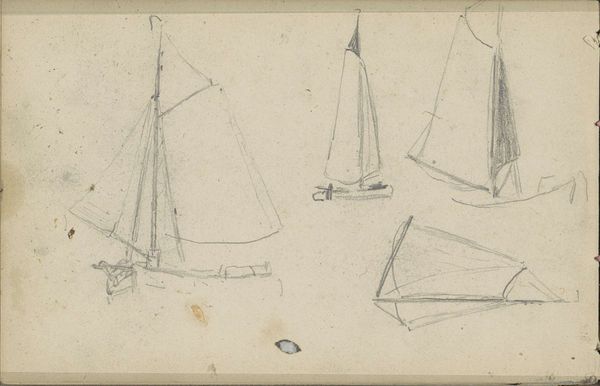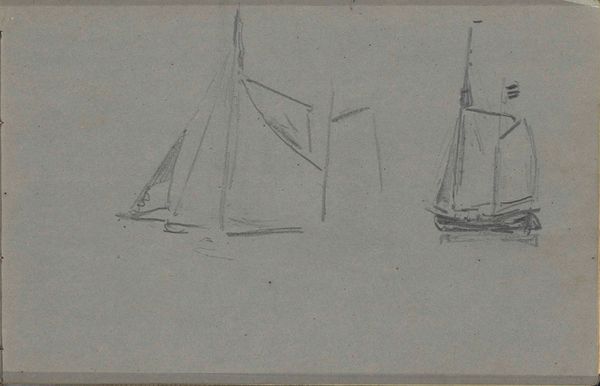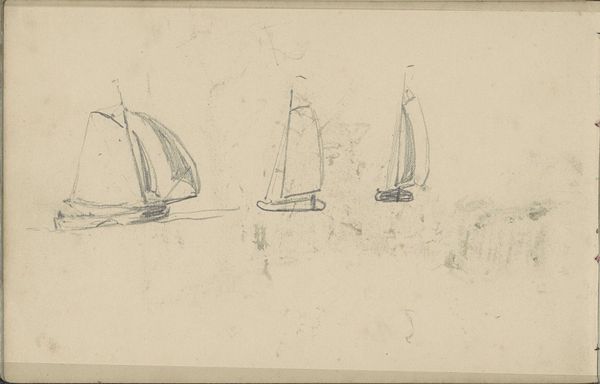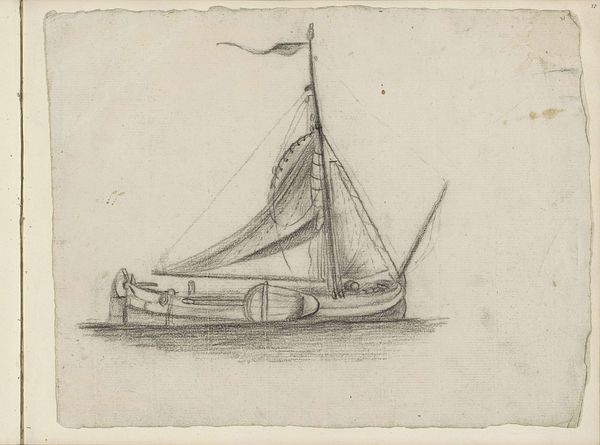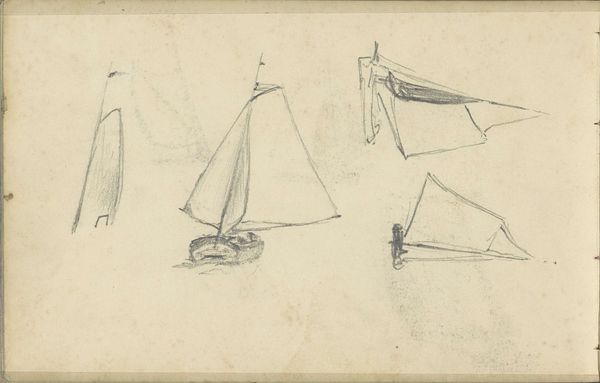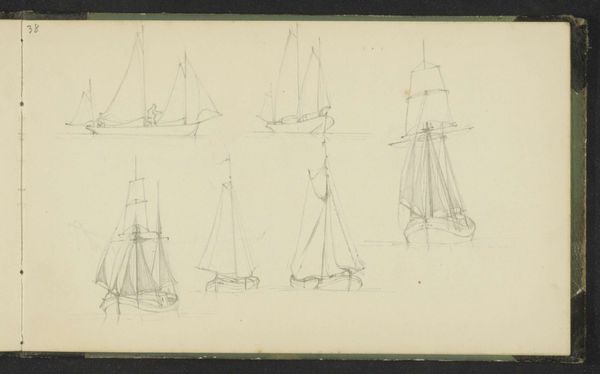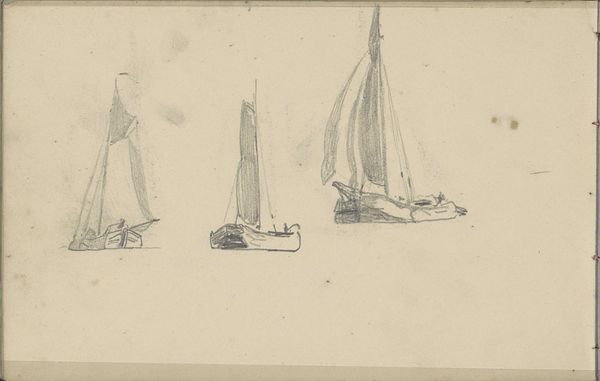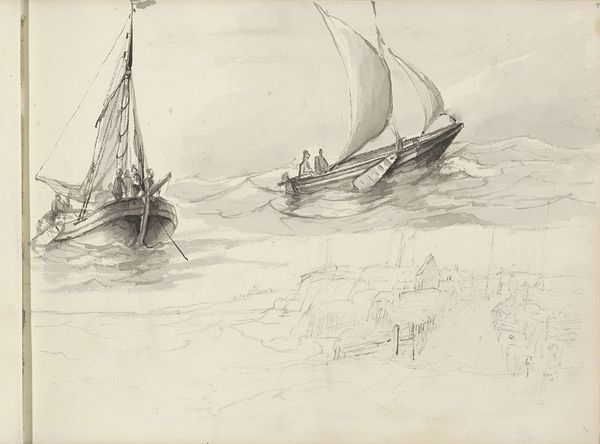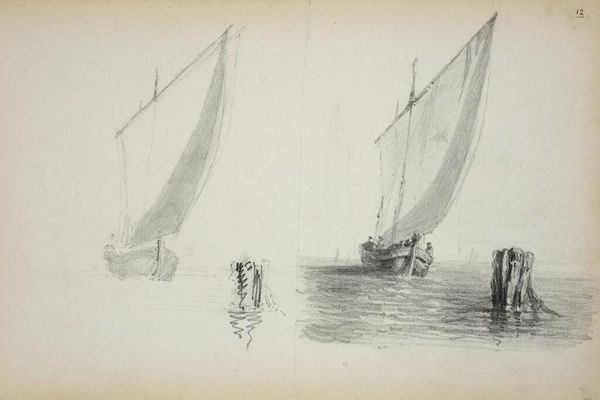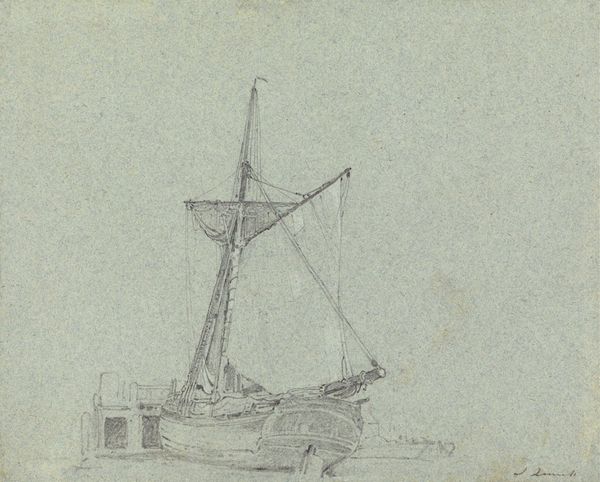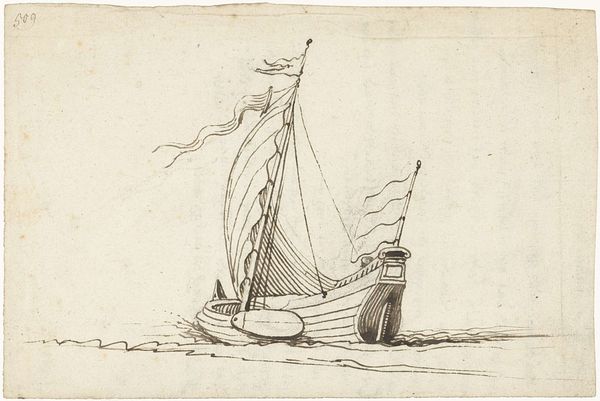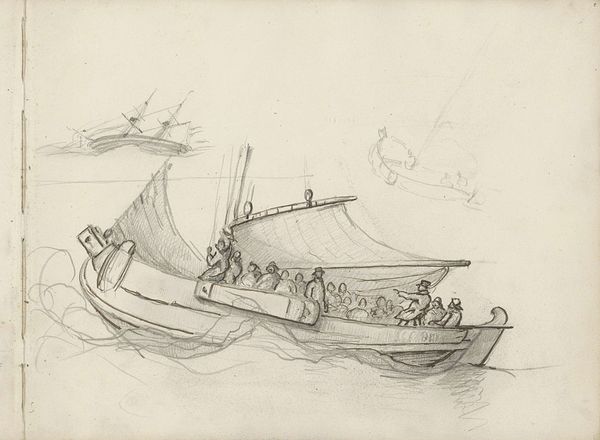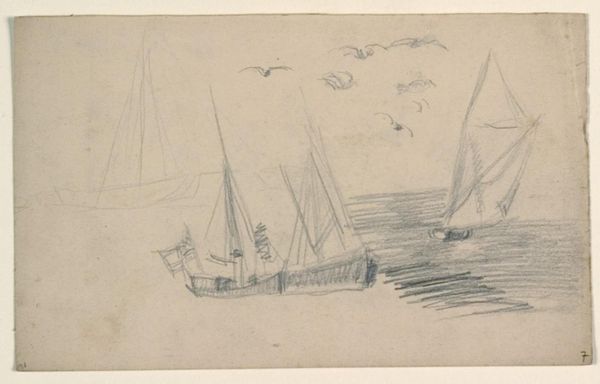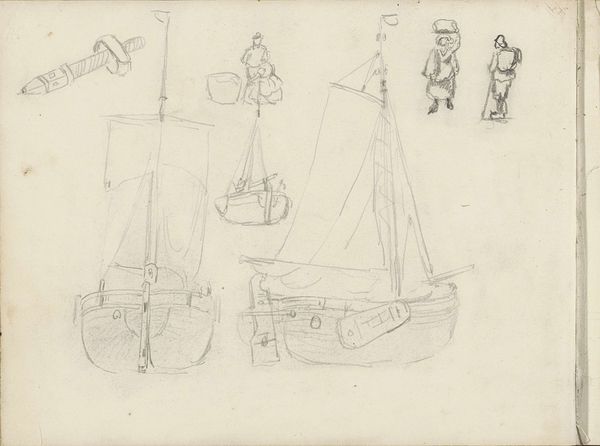
drawing, pencil
#
drawing
#
aged paper
#
toned paper
#
light pencil work
#
quirky sketch
#
pencil sketch
#
sketch book
#
landscape
#
personal sketchbook
#
idea generation sketch
#
pencil
#
sketchbook drawing
#
sketchbook art
#
realism
Copyright: Rijks Museum: Open Domain
Editor: This is *Studieblad met schepen*, or Study Sheet with Ships, a pencil drawing by Louis Apol from 1880. I’m immediately struck by the sketch-like quality; it feels very immediate, like a page ripped straight from the artist’s sketchbook. What stands out to you? Curator: The intimacy of this sketchbook page invites us to consider Apol's broader artistic practice within the socio-political currents of his time. These aren't just idle sketches. Think about the Netherlands in the late 19th century – a nation wrestling with its maritime history, its colonial ambitions, and the industrial revolution. Editor: So you’re saying that these sketches might be more than just observational studies? Curator: Exactly. Apol was known for his winter landscapes, often devoid of human presence, reflecting perhaps a critique of industrial encroachment on the natural world. Could these ship studies, then, be seen as an exploration of movement, trade, and connection – or even, through a postcolonial lens, of exploitation? What stories might these ships carry? Editor: That’s a powerful point. I hadn’t considered the possible undercurrents of colonialism in what appears to be a simple sketch. It makes you wonder about the subjects and perspectives typically excluded from landscape art. Curator: Precisely! Consider how these sketches, created using humble materials, stand in contrast to the grand oil paintings that often dominate museum walls. This act of documentation – these rapidly executed lines – serve as records and hints toward larger issues. Are there elements of social commentary embedded in his seemingly straightforward observation? Editor: I’m beginning to see the value in slowing down and questioning initial impressions, especially when thinking about works produced during transformative periods. Thank you! Curator: Absolutely, by examining the context, the artist’s biography and the work’s reception, we’re not just looking at lines on paper; we are gaining insights into a whole society's values and conflicts. It's a fascinating glimpse.
Comments
No comments
Be the first to comment and join the conversation on the ultimate creative platform.
